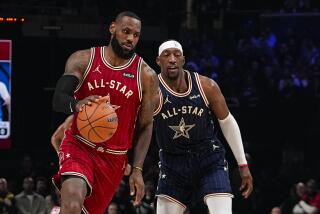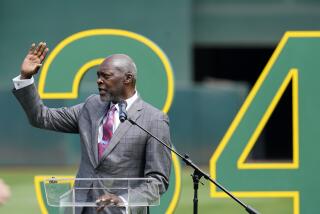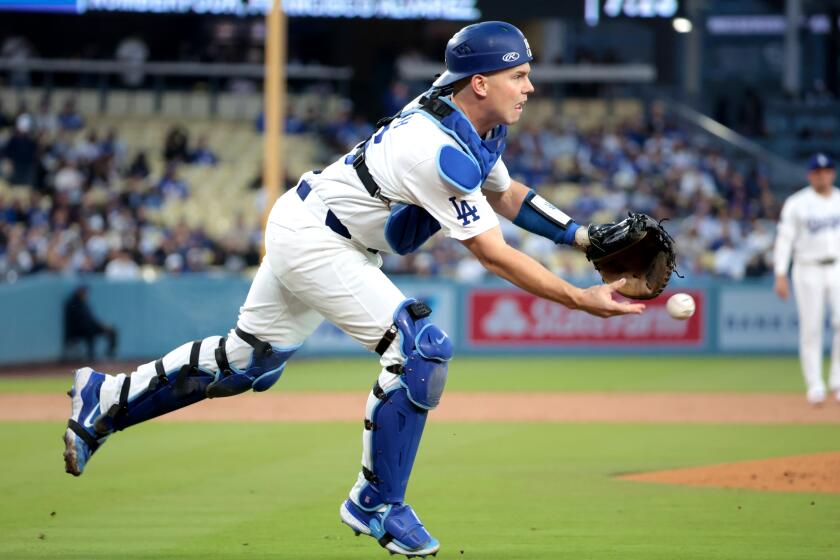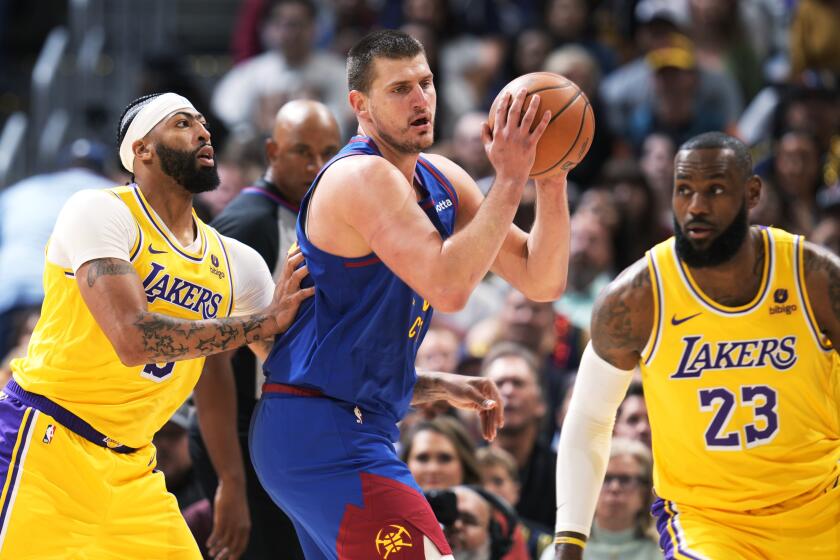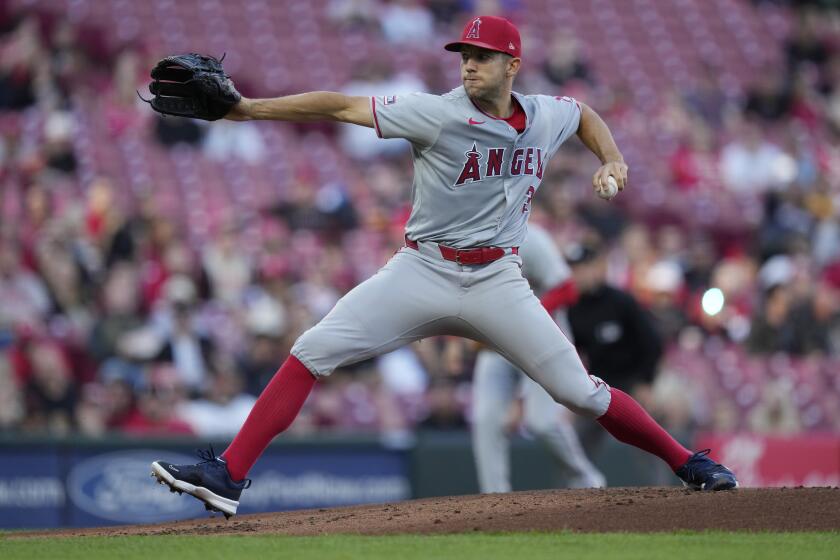Knicks’ Carmelo Anthony leads a call to action after tragic events of the last week
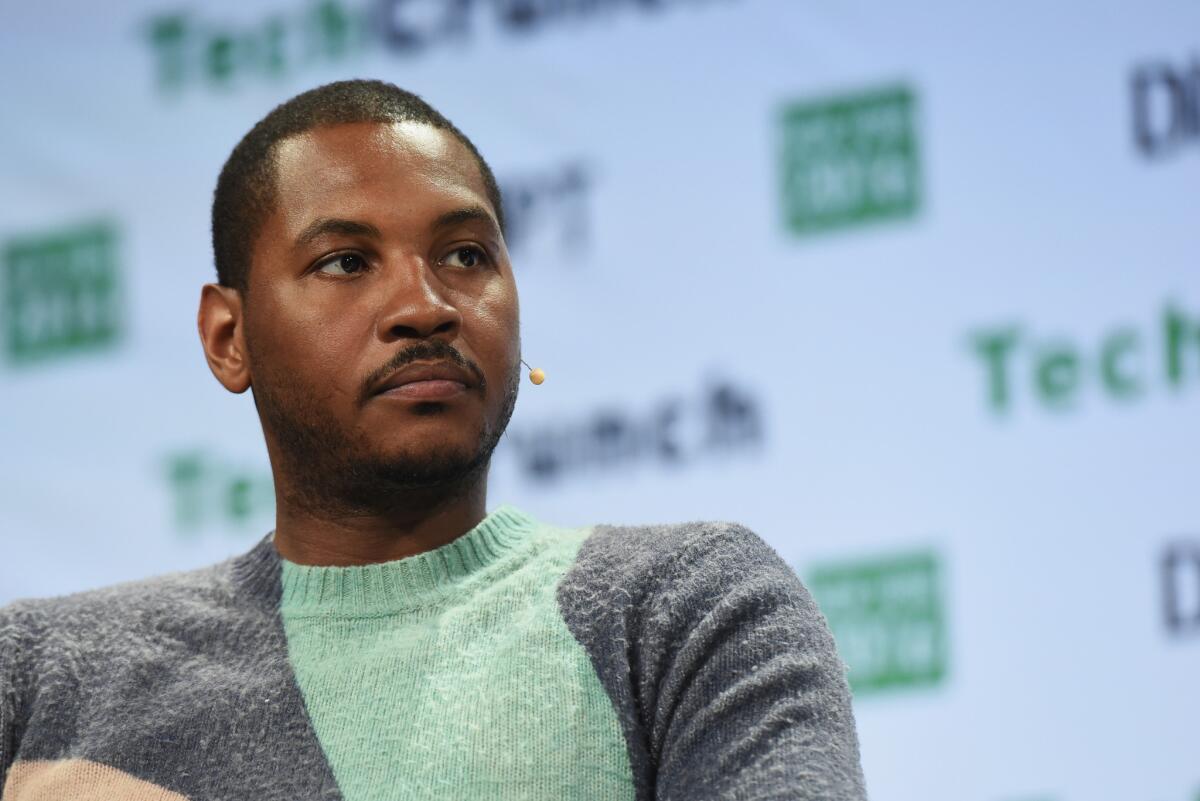
The words were heartfelt.
“The system is Broken,” Carmelo Anthony wrote Friday on his Instagram account in response to the racially charged events of the week.
The call for action was inspiring.
“There’s NO more sitting back and being afraid of tackling and addressing political issues anymore,” the New York Knicks’ star told his fellow athletes.
In an era when athletes are modeling their behavior in the tradition of controversy-averse figures such as Michael Jordan and Derek Jeter, it’s encouraging to see a star of Anthony’s magnitude saying he wants to be an agent of change.
I want to believe in the message. As the father of two young children, I really do.
But I’m skeptical.
The activist athletes of the past were able to connect with audiences because of the simplicity of their messages.
Jackie Robinson wanted to be judged by his ability, not the color of his skin. Muhammad Ali didn’t have a problem with the Viet Cong. Tommie Smith and John Carlos demanded their rights to be protected.
If athletes were to speak out today, what would they say?
Racism has evolved into something that is typically far more subtle than it was 40 or 50 years ago. In regards to the shootings of unarmed African Americans and police officers this week, race was certainly a factor, but it wasn’t the only factor. A multitude of other elements were also in play.
There aren’t any simple solutions.
Anthony acknowledged this in his 307-word social-media manifesto, which included a sentence that started, “While I don’t have a solution, and I’m pretty sure a lot of people don’t have a solution …”
Later in the day in the visiting clubhouse at Dodger Stadium, San Diego Padres outfielder Matt Kemp shared a similar concern.
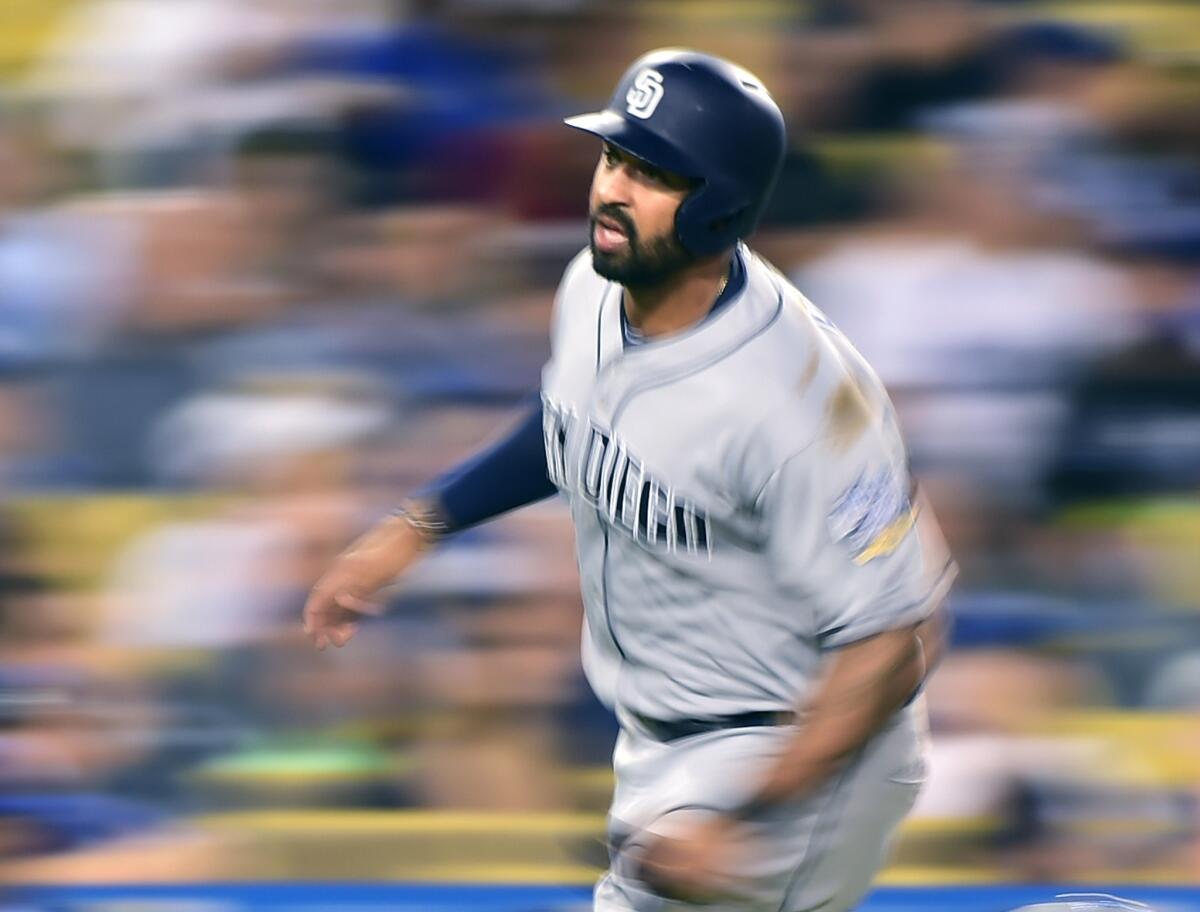
Padres outfielder Matt Kemp (27) runs home to score a run in the fifth inning against the Dodgers on July 7.
“How do you change what’s going on?” Kemp asked.
The former Dodger sighed.
“I have little cousins and little nephews and they have to see all this. They think this is normal. This is not normal.
“I would hope that things would change — the sooner the better, especially if I bring kids into this world.”
Kemp disputed the notion that every athlete today is reluctant to comment on social issues in fear of possible financial repercussions, pointing to how NBA players reacted when recordings of racist comments made by then-Clippers owner Donald Sterling became public. In that particular instance, the problem and solution were obvious. The players helped create momentum that resulted in Sterling receiving a lifetime ban.
Addressing the escalating tensions between the police and minority communities isn’t as straightforward.
Anthony touched on this problem as well, writing, “A march doesn’t work. We tried that. I’ve tried that. A couple social media post/tweet doesn’t work. We’ve all tried that. That didn’t work. Shooting 11 cops and killing 5 WILL NOT work.”
Everyone can all agree that unarmed civilians and police officers shouldn’t have to fear for their lives. But what should be done?
“I haven’t even thought about it, what to say, when to say it,” Kemp said. “I just know it’s wrong.”
That feeling is enough, said sports sociologist and civil rights activist Harry Edwards, a professor emeritus at UC Berkeley.
Edwards backed Anthony’s call for athletes to make demands from their elected officials. Make them look into problems and come up with the solutions, Edwards said.
Edwards noted that this is where modern athletes have an advantage over their predecessors.
If the likes of Jim Brown or Bill Russell had demanded an audience with Congress, Edwards said, “They would have been laughed at.”
But now?
“These athletes are walking corporations,” Edwards said. “Do you think the mayor of Cleveland will tell LeBron James to get lost? Do you think the mayor of Oakland would tell Steph Curry and Klay Thompson to get lost? Do you think the mayor of San Francisco would tell Joe Montana, Jerry Rice and Ronnie Lott to get lost?”
This isn’t an answer, but it’s a start. Let’s hope for the best.
dylan.hernandez@latimes.com
Twitter: @dylanohernandez
More to Read
Get our high school sports newsletter
Prep Rally is devoted to the SoCal high school sports experience, bringing you scores, stories and a behind-the-scenes look at what makes prep sports so popular.
You may occasionally receive promotional content from the Los Angeles Times.

